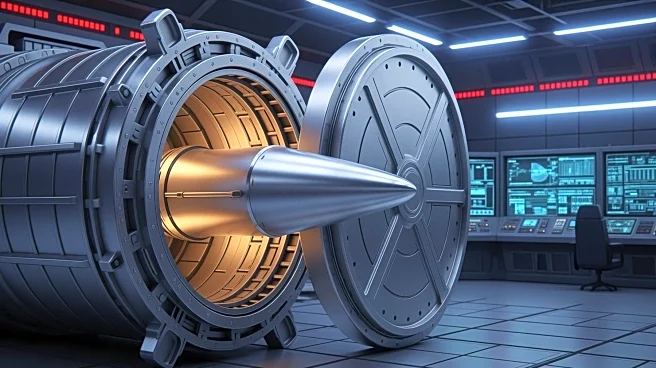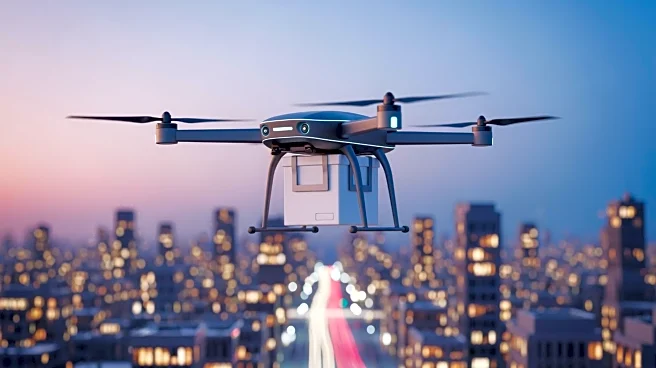What's Happening?
India is concerned about its ballistic missile capabilities being outmatched by China's growing arsenal. In response, India plans to create a joint rocket force to control and expand its non-nuclear missiles. However, the proposed Integrated Rocket Force
(IRF) has faced delays and may be outgunned by Chinese missiles. The mismatch could force India to endure Chinese missile strikes without the ability to retaliate or escalate to nuclear weapons. The IRF aims to address conventional war-fighting asymmetry with China, but its development remains theoretical.
Why It's Important?
The disparity in missile capabilities between India and China poses significant security challenges for India. The development of the IRF is crucial for India to maintain a strategic balance and deter potential aggression from China. The ability to engage in conventional military action without escalating to nuclear conflict is vital for regional stability. The situation also highlights the broader implications of missile proliferation in Asia, affecting security dynamics and defense policies in neighboring countries.
What's Next?
India will need to accelerate the development of the IRF to address the growing missile threat from China. This may involve increased investment in missile technology and collaboration with international partners. The focus on conventional missile capabilities could lead to policy changes and strategic adjustments in India's defense posture. Additionally, India may explore options to enhance its missile range and capabilities to counter China's strategic infrastructure.
Beyond the Headlines
The potential for missile competition between nuclear-armed powers raises concerns about escalation and the risk of conflict. The development of conventional missile forces must be carefully managed to avoid triggering an arms race or destabilizing the region. Furthermore, the situation underscores the importance of diplomatic efforts to address security concerns and promote dialogue between India and China.















